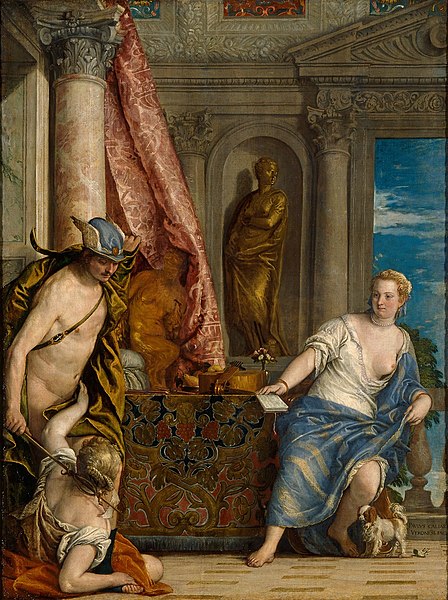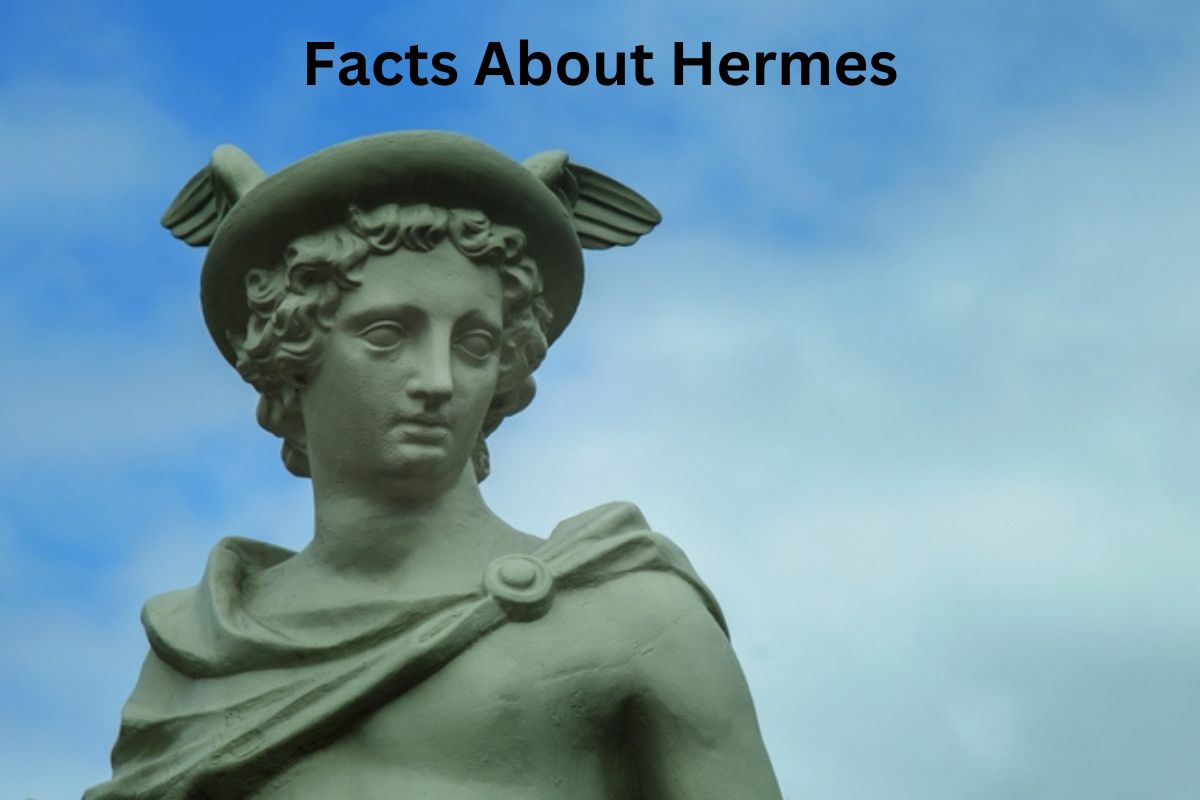Hermes is a prominent figure in Greek mythology, known as the messenger of the gods and the son of Zeus and Maia. He is associated with various domains such as communication, travel, trade, and thievery.
Hermes is often depicted with a winged hat and sandals, symbolizing his swiftness and ability to traverse great distances. He is credited with inventing the lyre and is regarded as the patron god of music and poetry.
Known for his cunning and trickery, Hermes played a role in guiding souls to the underworld and is equivalent to the Roman god Mercury.
Hermes Facts
1. Greek god in ancient mythology
Hermes is a prominent figure in Greek mythology. He is one of the twelve Olympian gods, who resided on Mount Olympus and held significant influence and power over various aspects of human life and the natural world.
Also Read: Dionysus Facts
The stories and legends surrounding Hermes were passed down through generations in ancient Greece.
2. Son of Zeus and Maia
According to Greek mythology, Hermes was born to Zeus, the king of the gods, and Maia, one of the Pleiades, a group of seven sisters.
Also Read: Facts About Hera
Maia gave birth to Hermes in a cave on Mount Cyllene in Arcadia. This divine parentage bestowed upon Hermes great powers and a special connection to the gods.

3. Messenger of the gods
Hermes is primarily known as the messenger of the gods. He served as the intermediary between the divine realm of the gods and the mortal world.
Also Read: Zeus Facts
Whenever the gods needed to send messages or communicate with humans, they would often rely on Hermes to deliver these missives swiftly and accurately.
Hermes possessed incredible speed and agility, allowing him to traverse great distances in a short amount of time. His role as a messenger also extended to other gods, mythical creatures, and even heroes, acting as a guide and delivering important information and guidance.
4. Associated with communication, travel, trade, and thievery
In addition to his role as a messenger, Hermes is closely associated with various domains. As the god of communication, he presided over eloquence, persuasion, and the art of speech.
He was often invoked by those seeking inspiration or assistance in matters of communication, including public speakers, poets, and writers.
Hermes is also linked to travel and was regarded as the protector of travelers. Ancient Greeks believed that invoking Hermes could bring good fortune and safe journeys. As the patron of trade, he oversaw commerce, merchants, and the exchange of goods.
Hermes was invoked during business transactions and negotiations, with the belief that he could bring prosperity and favorable outcomes.
However, Hermes’ association with thievery stems from his mischievous and cunning nature. He was known to engage in acts of trickery and theft, often outsmarting others with his cleverness. Hermes was seen as both a protector of thieves and a figure who could assist or hinder their activities, depending on the circumstances.
5. Depicted with a winged hat and sandals
Iconography played a significant role in Greek mythology, and Hermes is often depicted wearing distinct symbols. One of the most recognizable attributes of Hermes is his winged hat, known as a petasos or petasus.
The wings on his hat symbolize his swiftness and ability to travel with great speed. Additionally, Hermes is portrayed wearing winged sandals, called talaria, which further emphasize his agility and rapid movement.
The winged hat and sandals highlight Hermes’ role as a messenger, allowing him to fly swiftly between the mortal world and Mount Olympus. These symbols also represent his ability to traverse great distances, making him the ideal deity for delivering divine messages or guiding souls.

6. Inventor of the lyre
Hermes is credited with inventing the musical instrument known as the lyre. According to myth, as an infant, Hermes found a tortoise shell and transformed it into the first lyre by attaching strings to it.
He then played beautiful melodies on the instrument, captivating the gods and humans alike with his musical talent.
7. Patron god of music and poetry
Hermes held a significant role as the patron god of music and poetry in ancient Greek mythology. He was believed to inspire and guide musicians, singers, and poets in their artistic pursuits.
The lyre, which he invented, became a symbol of his association with music and poetry. Musicians and poets often sought his favor and invoked his name before performances or when seeking inspiration for their creative works.
8. Known for cunning and trickery
Hermes possessed a clever and mischievous nature, which earned him a reputation as a deity skilled in cunning and trickery. He was a master of deceit and often used his quick thinking and clever strategies to outsmart others.
Hermes was known to engage in playful pranks, tricks, and acts of mischief, which added a dynamic and unpredictable element to his character. Despite his mischievous nature, he was generally viewed in a positive light, as his tricks were often harmless and brought amusement.
9. Guide of souls to the underworld
In addition to his role as a messenger, Hermes played a significant part in guiding souls to the underworld. In Greek mythology, it was believed that after death, souls would travel to the realm of Hades, ruled by the god of the same name.
Hermes acted as a psychopomp, a guide who escorted the souls of the deceased to the realm of the dead. He would lead them through the perilous journey, ensuring they reached their final destination safely.
10. Equivalent to the Roman god Mercury
In Roman mythology, Hermes was equated with the god Mercury. The Romans adopted many aspects of Greek culture, including their gods and myths, but gave them Roman names.
Mercury shared similar attributes and roles with Hermes, being the messenger of the gods, the patron of commerce, and the guide of souls to the underworld. The blending of these two mythologies demonstrates the cultural exchange and influence between ancient Greece and Rome, as well as the similarities and shared beliefs between the two civilizations.
